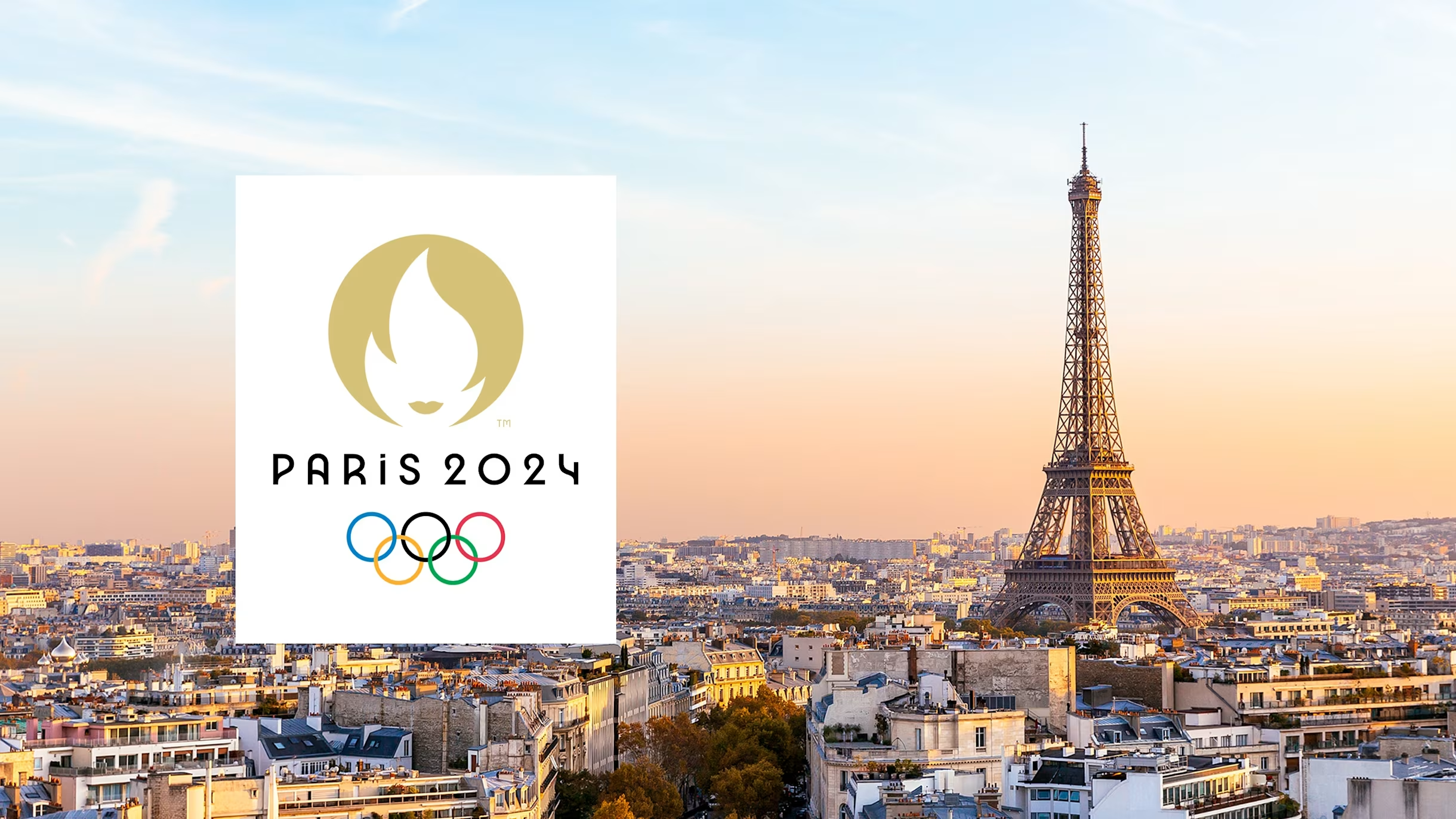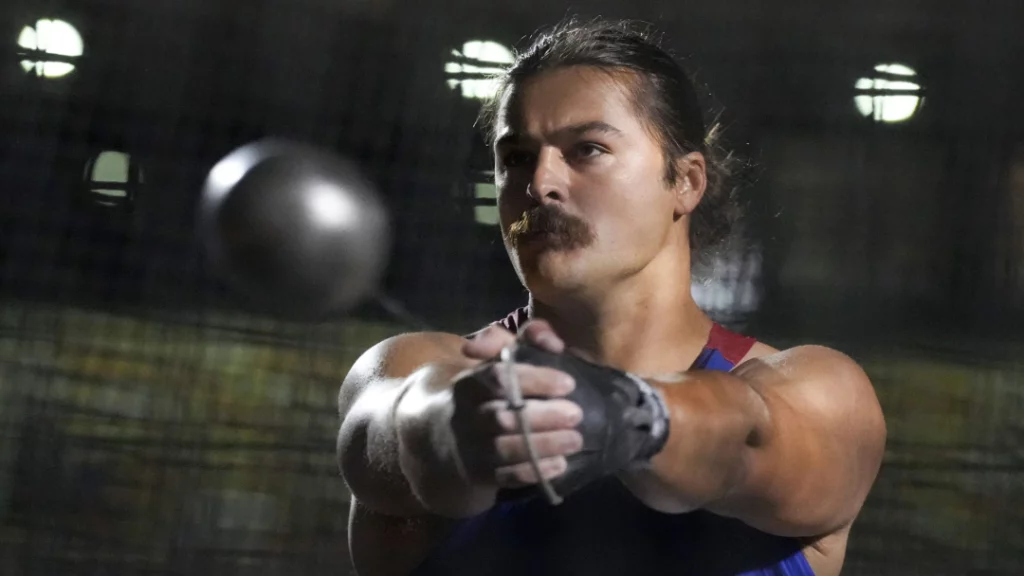The 2024 Paris Olympics has raised a number of questions in my philosophical mind, and not for the first time. The questions also raise troubling dissonance.

I’m a nationalist, a proud Canadian. Proud of my country’s past, its achievements, its values and its [former] reputation in the world, proud of my country’s athletes. I choke up at the singing or playing of O’ Canada, and the Royal Anthem, and I am moved when we celebrate honest exceptional achievements of Canadians, both ordinary and special. I yearn for a mystical past when Canada meant something, somewhat different from what it seems to represent today. It viscerally disturbs me to hear Prime Minister Justin Trudeau declare himself the leader of the first post-national state.
And yet I’m also an idealist and very aware of the desirability, and even the inevitability, of a converging world. Human beings are one species on this planet and we are gradually, inexorably becoming fully integrated into one race.
I’m also a bio-evolutionist. Human beings may be one species but its races evolved through adaptive natural selection to deal with the climatic conditions that the migrating species encountered. Adapt or perish is the watchword and the races that survived did: black and dark-skinned people evolved concentrated pigmentation to survive the damaging ultraviolet rays from the intense sunlight in equatorial zones; white and light-skinned people lost this permanent pigmentation in order to absorb sufficient vitamin D from the scarce sunlight in northern latitudes; Innuit people throughout the arctic circle evolved a metabolism to survive on a diet comprised almost exclusively of animal protein and fat, and thousands more examples of evolved advantage via natural selection. Moreover, human beings tended to congregate in tribes and clans – especially as they became more and more agrarian and settled in semi-permanent abodes and villages. It became completely natural for tribes to look with both fascination and fear at strangers approaching their villages, especially if those strangers didn’t look like them. Xenophobia is a hard-wired tendency necessary for the survival of the tribe.
Human beings developed war-like capabilities, both defensive and offensive. And being verbal they also developed words and labels to distinguish themselves from their threatening adversaries, and to boost their psychological need for moral superiority while denigrating the other. Hence language so filled with pejorative terms for the other: the Hun, the Limeys, the frogs, the darkies, the wops and the wogs, and hundreds of other epithets, thankfully largely banished from modern language.
However, the more we erase the intolerance and the nasty judgementalism from our tribal behaviours the more we also lose the distinguishing aspects of the other’s identify and culture, and we dilute our own sense of identity. What’s a German without lederhosen? A Scot without a kilt, a Massai without his shield?
I find it paradoxical that we admire and patronize and protect other cultures, celebrate their differences, travel the world to observe them at first hand, like artifacts in a museum, and yet slowly but surely watch as these cultures, and our own, gradually become submerged in one amorphous undistinguished uniculture.
When Baron Pierre de Coubertin, a French aristocrat, instituted the modern Olympic Games, he assuredly had more in mind than athletic achievement based on the ancient Greek ideals. The games, both ancient and modern, were clearly surrogates for demonstrating superiority amongst competing nations or city-states. The first Olympic games gradually declined with the unraveling of the Roman Empire around AD 393. The jingoistic de Coubertin Games more swiftly came apart following two annihilating world wars but continued as a surrogate for ideological supremacy during the Cold War.
Today this deluded and eventually diluted notion of national superiority is increasingly anachronistic with the accelerated mass migration of the world’s peoples since the Great Wars. Now the world is becoming so fluid it is hard and harder to say what is German and what is Jamaican. The Olympic Games, both ancient and modern, have always served as a surrogate for national supremacy. Is it time to change this paradigm?
The games were, originally and as resurrected by de Coubertin, not just about competitions for national prestige and glory through athletics, they were also a demonstration of military skills: how else to explain archery, wrestling, and discus and javelin events for that matter. (On the other hand, I have no words for breakdancing.)
Politics and pride still take centre stage in the Modern Olympic Games and Paris 2024 was no exception. There were 204 countries with at least one athlete representing them, plus the IOC sponsored EOR (an acronym of Équipe Olympique des Réfugiés) and the AIN (Athlètes Individuels Neutres, athletes nominally from Russia and Belarus, countries otherwise banned from competing in recent Olympic events because of systemic cheating). The athletes are paraded through the stadium in opening and closing night spectacles, the medal counts are listed by country, the victorious athletes are compelled to don their national flag in triumph, and the national anthem is played for the gold medal winner. Broadcast commentators enthusiastically and credulously claim ‘another medal for Canada!’, or ‘America wins another Gold medal’.
(Aside: Is it any wonder America wins the medal count each year, a country so large and prosperous, a melting pot of so many other nationalities and races, with no real competition from other countries of similar size, especially since the demise of the Soviet Union and the banishment of Russia from the games. (China improves its medal count with each Olympiad. I wonder what the medal count is for the European Union if we amalgamated all its member countries?))
Well, I’m sorry to say that no such thing happened: The Philippines did not win two gold and two silver medals. Brazil did not win the women’s beach volleyball completion. Olympic athletes did not win anything for their countries – they competed, and won (or lost), for themselves. Are Canadians more superior because Summer MacIntosh won three gold medals in swimming? Are we losers because André de Grasse failed to qualify for the 100 meters final? (but redeemed himself, and us, for closing the final leg and winning the 4×100 meter relay?)
For that matter, are these athletes more motivated because they are on the world stage competing for their country? (Maybe.) Are they more elated for winning their event ‘for Canada’? (probably), more deflated for losing?
How can we, spectating couch-potatoes, claim any reflected glory for all the hard work the athletes put in – for years – to get there? How many of us knew anything of the glorious duo of Cameron Rogers and Ethan Katzberg before these Olympics? (or will remember their names two weeks later?), or even knew what the hammer throw is?

Oh, we can claim we supported the training for these national athletes by the grants paid by Athletics Canada out of our income taxes, but how many of us made direct donations? Or even watched any of these events before they showed up on the CBC Paris Pride network?
I said earlier I am a nationalist and, like most other Canadians, I was proud and moved by the performance of Canadian athletes in these Olympics, the agony of defeat as well as the thrill of victory. But as I look at the make-up of the Canadian team, I’m hard-pressed to know what exactly it is to be Canadian. For that matter, the multi-racial makeup of the British and the French teams, and perhaps many other European teams, makes me wonder what is it exactly that makes the Olympics a competition between nations, as if nations were sports teams comprised of the best athletes the national teams could recruit, even from other nations, like a professional soccer club made up of international mercenaries? Where would the Canadian athletics sprint team be without its contingent of Jamaican-Canadians, or even the American track team and basketball teams, without its black-Americans? Or the Brits or the French for that matter. (Of course, it’s not surprising we see few, if any, black or white Chinese athletes, or Filipinos.)
I think as the world continues to shrink, with more and more international travelers, and migration, and citizens of the world, this categorization of athletics by nationality has become (or is rapidly becoming) anachronistic.
I think the time has come to abandon nationalism in sports. Athletes should be selected to compete for world titles, not by nationality but by excellence and merit. The only demarcation would be size and gender. (And that is now another story.)
In sports, at least, it’s a post-national world.
Doug Jordan, reporting to you from Kanata
© Douglas Jordan & AFS Publishing
All rights reserved. No part of these blogs and newsletters may be reproduced without the express permission of the author and/or the publisher, except upon payment of a small royalty, 5¢.
